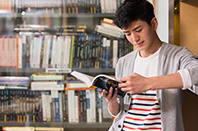
能力段写作词汇大纲使用说明:
大纲词语或者短语都是出自雅思历年题库的高频原词,已经按照字母进行排序,部分偏难怪题的词语不列入本大纲。词语大纲主要目的是让学生知道,在语法教学之中选用的素材可以从什么方向着手。
学生有权利选用其他词汇素材,但千万不要难度太大。如果在选用素材的时候,和大纲的素材相差太远,那么这些素材不应该列入学习计划,以免学生所学的内容无法用上雅思考试。
在选材的时候,尽量选择使用词汇大纲的原词的细化素材。例如 communication 是词汇大纲里面的原词,选材的时候,就可以选用例如 chatting with friends via WeChat 这类的表达方式。
EXAMPLE:
A.了解知识点的时候,用到这么一个例句:In early philosophical probing … 其中的 philosophical probing 和下面的词汇大纲是没有任何直接联系,学生学会这种词语只会增加学生负担,所以这个例句不建议使用。
B.了解知识点的时候,用到这么一个例句:Children should not waste their valuable school time on learning subjects such as physics and chemistry. 其中,subjects such as physics and chemistry 和词汇大纲之中的 a range of subjects 有直接的联系,所以这种例句建议使用。
字母排序:
A:
24 -hour TV programs
a range of subjects
a waste of time to read the news
academic qualifications
academic study
achieve personal ambitions
adults
advertising aiming at children
advertising of certain food products
age limit for driving
alternatives
anti-social behavior
armed forces
art, such as music and painting
athletes
B:
be employed without a job they enjoy
be free to choose his or her job
be put into prison
be realistic and think about their future
becoming more and more similar
becoming more dependent on each other
behavior
books, films
branches, offices and factories
buildings
buy and use their own car
buy more and more products
C:
celebrities
change their career
change their jobs or careers
characteristic
charity organizations
childcare centre
child’s education
children and teenagers
choose science subjects
cities continue growing
climate change
college education
commit crimes
compete with younger people
competition of university places
concentrate on or pay attention to school
contacts between different parts of the world
criminal trials in law courts
culture and tradition.
customs and the traditional ways of behavior
D:
dangerous sports
dependent
develop their career through work experience
discourages us from being different individuals
do better at their jobs
E:
economic growth
efficiency
encourage consumers to buy in quantity
environment
extended family groups
F:
face-to-face communication
family
family members
fertilizers
financial support from the government
focus on its function
focus on the present
follow traditions of their society
food in other regions
foreign companies
fresh water
full-time education
funds for the arts
G:
giving aid to poorer countries
globalization
government funding
graduate unemployment
H:
handwriting
hard work and determination
have a moral obligation to help each other
have freedom to
have more choices
have no connection to people's lives
having a permanent job
health
healthy diet
high volumes of road traffic
historical sites
horizontal” city
household goods like television, microwave oven and rice cooker
housing and road
human activities
I:
important positions in government
imposed a congestion tax during rush hour
increase in food production
increasing energy needs
independent.
influence the way people think
information intelligent children intelligent life forms international aid organizations International community international cooperation international news
international travel make people prejudiced Internet interview
involved in other activities
J:
job satisfaction
L:
lack a sense of community
lack of respect for others
languages
large cities
large public outdoor places like squares and parks
lawbreakers
lead a healthy lifestyle
leaders or directors of organizations
learn how to bring up their children
learn language and culture
learning history in school
leisure activity
less useful subjects
life of the elderly
live away from home
live individually or in a small family unit
live performance
local companies.
local people.
long average working time
M:
machines
make a perfect society
make continued progress
makes life complex
mobile phone and computer
modern buildings
money
money-making attractions
multinational companies
museum
museums charge people for admission
museums displaying objects of artistic, historic and cultural value
N:
news media
noise
nuclear energy
O:
oil and gas
old people
overeating
P:
painting and drawings
parenting course
parents who educate their children themselves at home
past historical and cultural objects
pay for the full cost of education
pay medical costs
people choosing to live by themselves
people in their own country
people of different ethnic groups
people who are bad by nature
places of residence
planning future
plant and animal species
plant trees
postgraduate research
poverty and other social problems
prepare for their future career
preparing their modern life
preserving both culture and environment
pressure
previous centuries
Printed book
prison,
private companies
private organizations
produce a happier society
production of consumer goods
products from famous brands
program of international exchange visit
proportion of elderly people
protection of wild animals and birds
provide free public transport
provide useful information
public health
public libraries
public parks
punishment to clean streets
Q:
quality of food
quality of life
R:
reduce the consumption of fossil fuels
regional areas
remote and untouched places
replaced physical work
resources
restoration of old buildings
return to traditional and older values of respect for family and community
reward students
rubbery or a violent attack rural areas
S:
salaries
satisfying career
scholarships
science
Scientific progress
scientific research
secondary school
senior managers
share household tasks equally
shopping centres
shopping habits
skills of employment
small differences between the richest and the poorest members
smoking
snacks, toys
social skills
space tourism
specialized sports facilities
spend their free time
sport
sports competitions such as the Olympics, football world cup sports facilities
study or work
studying and living in a different country
subject for students
success
T:
take one year off between finishing school and going to university
take punishments for the crime
taught separately
teach good behavior
teach language students in small classes
tendency for human beings to copy one another
those who are talented or have special skills
tourists
towns and cities
travel
trust journalists,
TV
time
U:
university
university fees,
use animals as food and in other products like clothing and medicines
V:
vertical city
video games
W:
walking
women
work and study at home
work at home
work in other countries
work together
workers
world business
write letters
上一篇: 雅思写作难点分析和应对方法
下一篇: 2018年雅思写作题目分析和趋势变化预判

